How Long Does a Pickleball Game Last? Duration Details
Pickleball is a sport that combines elements of tennis, badminton, and ping pong, enjoyed by players of all ages and skill levels. As the popularity of pickleball continues to soar, it’s crucial for both beginners and seasoned players to understand how long a typical game lasts. The duration of a pickleball match depends on a variety of factors, which can create a rich tapestry of experiences for those in the game. Whether you’re looking to maximize your competitive edge or simply enjoy some recreational play with friends, understanding the intricacies of gameplay duration can enhance your experience tremendously.
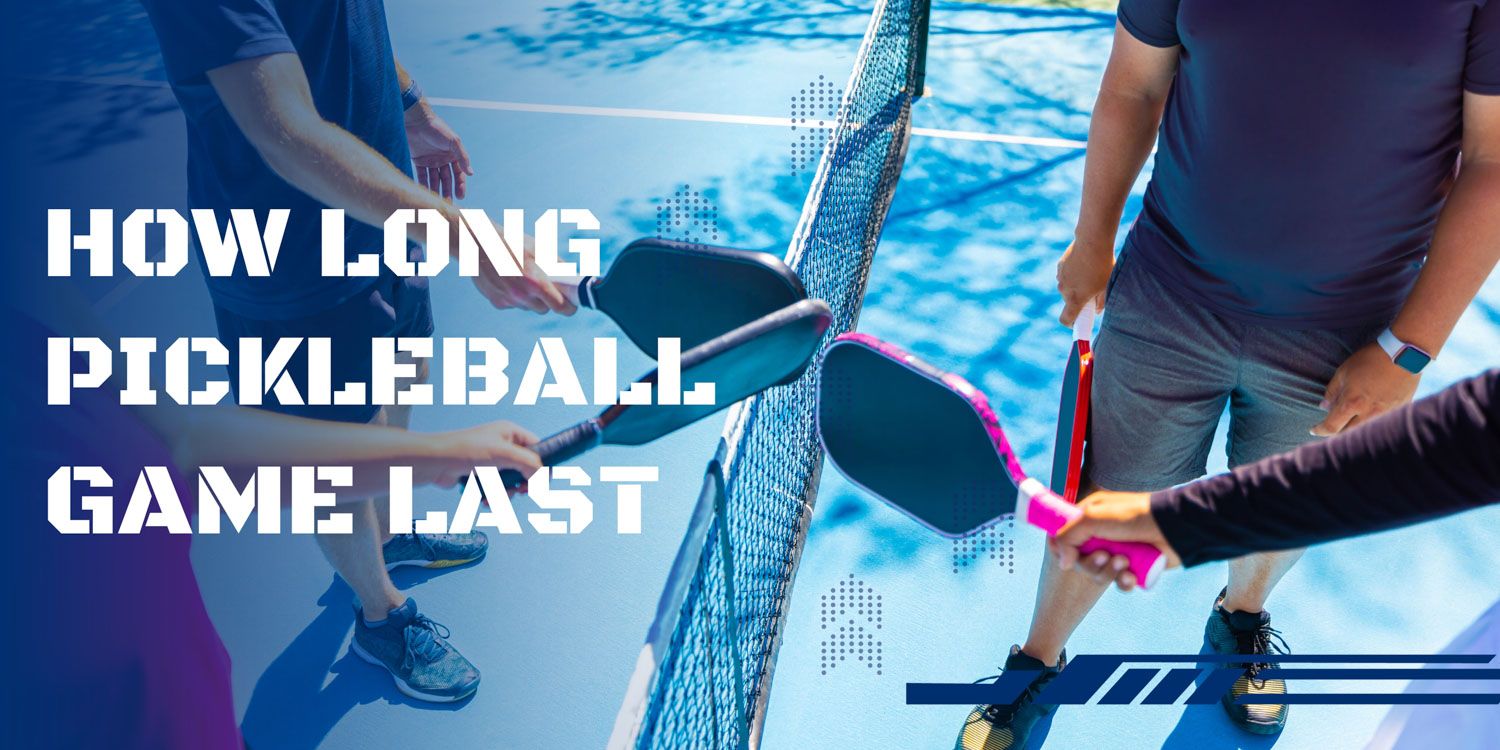
Throughout this article, we will explore the various factors affecting game length, including player skill, game formats, and scoring systems, as well as the unique playing styles that contribute to the ebb and flow of a match. We will delve into average game lengths across casual and competitive scenarios while outlining some practical tips for managing game duration effectively. By the end of this exploration, players will not only have a clearer picture of how long a pickleball game typically lasts but also the rich context that influences this duration.
Factors Affecting Game Duration
Several factors come into play when determining the length of a pickleball game. Among these, player skill levels, game format, and the scoring system stand out as significant influencers.
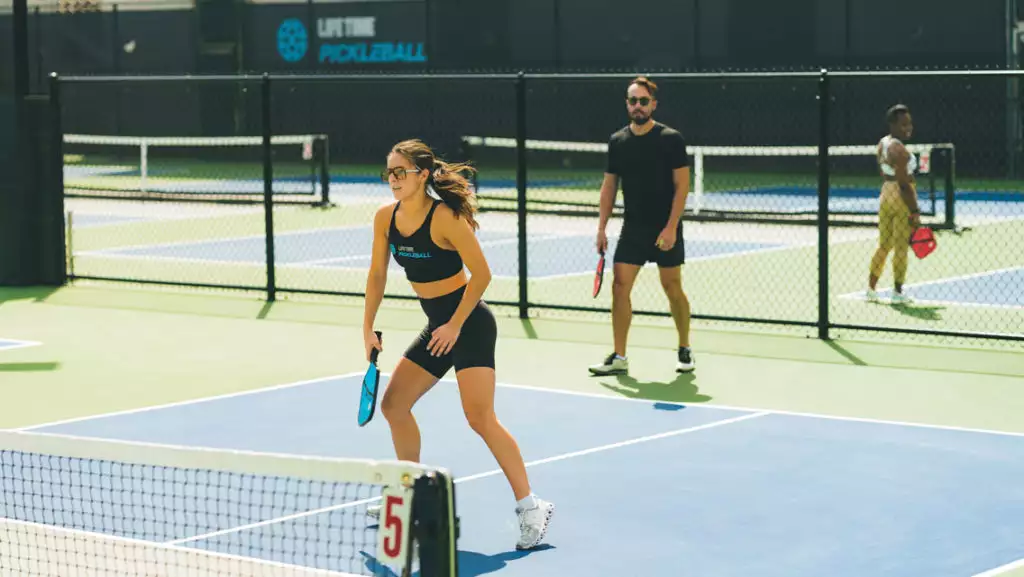
- Player Skill Levels: The experience and proficiency of players fundamentally shape game length. Experienced players often engage in longer rallies thanks to their consistency and powerful strokes, leading to extended game play. In contrast, players with less experience tend to make more errors and faults, resulting in shorter games.
- Game Format: Whether a game is played as singles or doubles influences not just the dynamics of play but the length of the match as well. Singles matches generally extend longer because each player must cover the entire court, thus prolonging points.
- Scoring System: Finally, the structure of the scoring system traditionally played to 11, 15, or 21 points has a direct impact on game length. Matches requiring a two-point win condition can lead to longer games, especially when scores are closely contested.
Grasping these fundamental elements sets the stage for a deeper understanding of how different types of matches unfold in the vibrant world of pickleball.
Player Skill Levels
The skill levels of the participants are perhaps the most critical determinant of how long a pickleball match lasts. In competitive play, it is common to see longer matches due to players having higher skill sets, which enables them to engage in extended rallies filled with strategic shot placement and finesse.
- High-Skill Players: When highly skilled players face off, rallies can intensify, with each participant hoping to outmaneuver the other. The result is not only longer rallies with more back-and-forth action but also increased mental fatigue as players strategize their next move. Points often stretch out, leading to games that can last anywhere from 30 minutes to over an hour, depending on the scoring rules.
- Intermediate and Novice Players: Conversely, those with less experience tend to produce more errors or ‘unforced mistakes.’ This may result in a slightly quicker game length potentially around 15 to 25 minutes, especially if players are often unable to hit the ball consistently. Rallies may be shorter, and points quickly turn into games won with minimal effort.
- Adaptability of Skill Levels: Interestingly, skill level can also evolve during a game, especially in casual settings. Players might improve as the game continues, leading to gradual increases in rally length as they become more comfortable and confident in their techniques.
In summary, player skill levels create dynamic shifts in gameplay, influencing not only how long a game lasts but also the enjoyment derived from it. Knowing this can help both novice and experienced players adjust their expectations and strategies accordingly.
Game Format (Singles vs. Doubles)
The format of the game whether it is singles or doubles drastically impacts game duration. Each format has its unique characteristics that contribute to either a quicker or longer playtime.
- Singles: In singles play, each athlete is in full control of the entire court. This heightened level of responsibility often leads to longer rallies as players move around to return shots. Because the entire court is in play for just one individual, points can be prolonged, leading to matches typically lasting from 30 to 60 minutes, particularly if players are well-matched in skill.
- Doubles: On the other hand, doubles play, with two players on each side, often allows for quicker matches. The presence of a partner means each player covers less ground, which can lead to faster points, especially if there is strong communication and strategic positioning involved. While cooperative teamwork can create longer rallies, a single partner’s error can result in quick points that reduce the overall match duration, often leading to games that may last anywhere from 15 to 30 minutes.
- Pace and Dynamics: The pace of play differs between singles and doubles as well. In singles, the pace tends to be swifter since there’s no waiting for a partner to set up. In doubles, coordination and communication may slow down the rhythm as players strategize together. The dialogue and decision-making can add time but also create an engaging dynamic that enhances the enjoyment of the game.
In essence, understanding the impact of game format enriches players’ strategic approaches and shed light on how game duration can shift dramatically based on whether they’re playing singles or doubles.
Scoring System
The scoring system employed within a pickleball game uniquely defines the overall duration of each match. Understanding this is crucial for players to gauge how long their sessions might last.
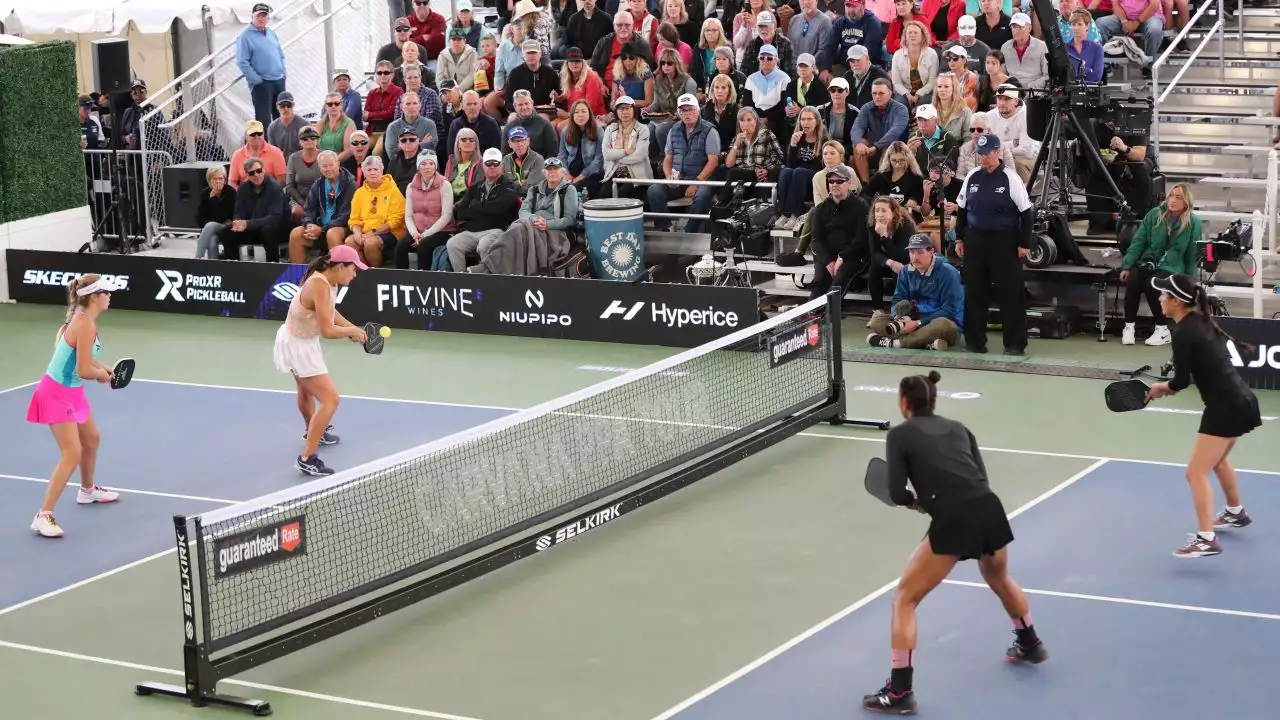
- Traditional Scoring: Typically, pickleball is played to either 11, 15, or 21 points, with a requirement that a player must win by at least two points. This ‘win by two’ rule intricately ties into the overall game duration. For example, matches being played to 11 points may average around 15 to 30 minutes due to their relatively low point thresholds.
- Competitive Scoring: Conversely, if a match is played to 21 points, it can extend the game duration significantly, often hitting the 30 to 50-minute mark. Tournaments may adopt these higher point totals to ensure athletes engage in longer strategic efforts, where each point becomes critical, and this contestation can prolong rallies considerably.
- Serving Dynamics: Another aspect of scoring relates to serving teams. Under the traditional pickleball scoring system, only the serving side can score points, which means that if the receiving team is executing successful returns, rallies can stretch longer. Therefore, if the players are evenly matched with strong service returns, the game may last significantly longer than anticipated.
- Variability in Game Length: With varied scoring systems, players cannot rely on a fixed duration for their games. Regular practice and participation in different formats expose players to varying lengths and strategies, enhancing overall gameplay regardless of timing.
In summary, the scoring system offers players a general blueprint for estimating game duration. However, it also adds an element of unpredictability that contributes to each match’s unique experience and enjoyment.
Average Game Length
On average, the length of a pickleball game can significantly vary based on multiple contexts, including casual play, competitive matches, and tournament settings. Understanding these variances can help players better manage their time and expectations surrounding this exciting sport.
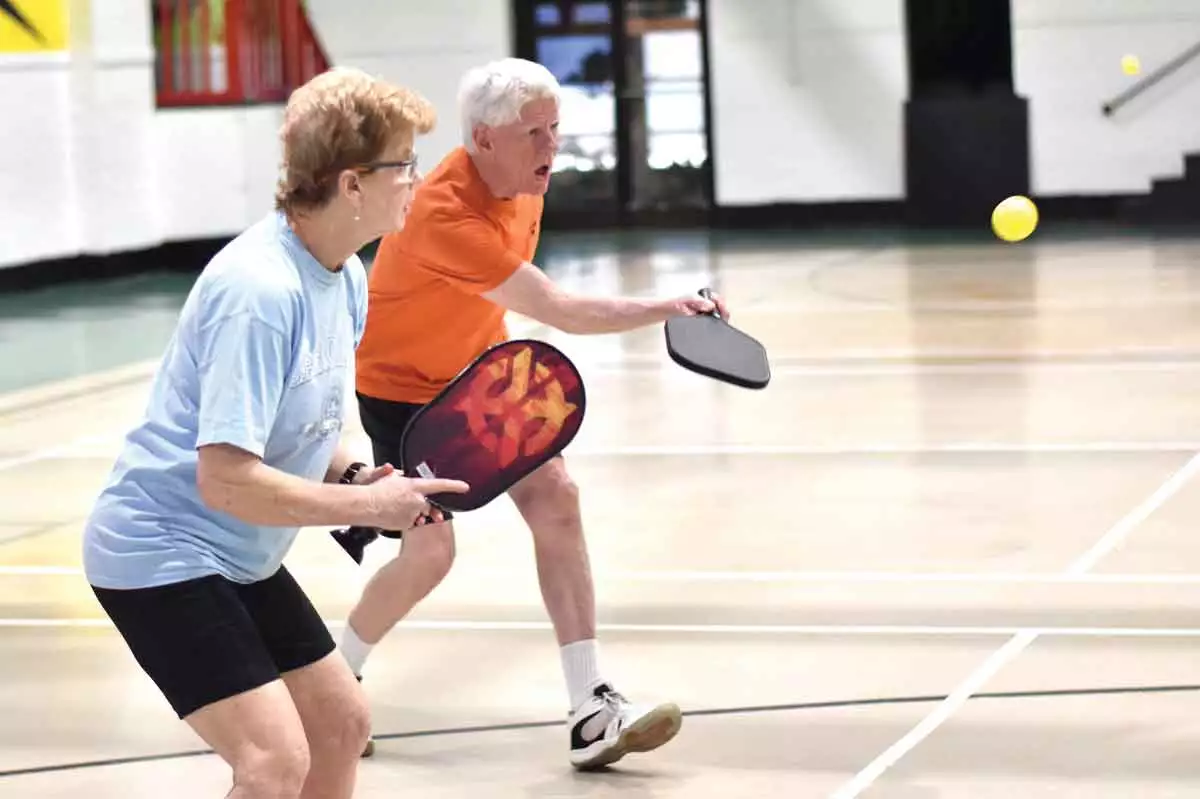
1. Casual Games: Casual games, typically played among friends or in community settings, commonly last between 15 to 25 minutes when played to 11 points. This timeframe can fluctuate based on informal play dynamics, where participants may focus more on enjoying the game than the clock. Thus, individual player skills and scenarios can result in further variations within this range.
2. Competitive Matches: Competitive games, however, tend to expand the match length, averaging anywhere from 30 minutes to over an hour. Factors contributing to this increase include the intensity of play, the scoring system in use, and the format, which might incorporate best-of-three games. Players in these situations may engage in battle-like exchanges that demand focus, stamina, and strategic understanding, all of which extends the enjoyment, even as it adds time.
3. Tournaments: Tournaments demonstrate additional variability in duration, as matches can last 30 minutes to over an hour or more, reflective of the competitive atmosphere. Also, when played to higher points like 15 or 21 the overall game duration escalates, especially among experienced players who thrive in closely contested scenarios. The requirement of winning matches by two points further extends potential game lengths, especially in tightly matched competitions.
In conclusion, understanding average game lengths in differing contexts whether casual, competitive, or tournament is integral for the player’s experience. With each setting offering its nuances, players can navigate their expectations for game duration accordingly.
Casual Games
In casual pickup games, players often enjoy the simplicity of the sport, but the length of these games can vary depending on several factors. Generally, casual games last from 15 to 25 minutes when played to 11 points.
- Relaxed Atmosphere: The atmosphere is generally relaxed, allowing players to engage in longer rallies simply for enjoyment. This ethos of friendly competition can lead to variability in game time as players drift into longer sessions, enjoying each other’s company while playing at their own pace.
- Skill Variability: Players with mixed skill levels might find their games extend beyond the average due to learning curves and fluctuating gameplay dynamics. Less experienced players may initially find themselves making an array of unforced errors that shorten points, but as they develop skill, matches may see a progression toward longer rallies and more competitive exchanges.
- Social Interactions: Social interactions are a significant facet of casual games. Players may take time for chats between points or engage in warm-ups and cooldowns, which can contribute to the overall time taken for the game session. Thus, these social elements add layers to match duration which are often non-existent in competitive settings.
- Tactical Play: Even in casual play, some players may adopt certain strategies to enhance their game, leading to unexpected bursts of competitive spirit. Some rallies can extend due to the intentional tactical maneuvers deployed, such as targeting specific weaknesses or maintaining a tighter defensive play.
Ultimately, casual games provide a unique perspective on pickleball, allowing players to appreciate the game without the pressure of extensive formality.
Competitive Matches
When it comes to competitive matches, the dynamics become much more intricate, leading to longer game lengths and several factors that influence the overall duration.
- Increased Focus: Competitive settings elevate player focus, with athletes more instinctively prepared to engage in more extended rallies. This mindfulness can create longer points as players trade strategic shots, with the aim of outsmarting their opponents.
- Structured Formats: Competitive matches frequently adopt structured formats that require players to win by a two-point margin. As a result, this can elongate game length when both players find themselves evenly matched. For example, matches played to 15 or 21 points can average 30 minutes to over an hour, depending on score closeness and skill set.
- Intensity and Stamina: The intensity of competitive matches demands higher stamina levels, creating a rhythm that may push games longer due to the players’ dedications to maintaining performance. This heightened stress can lead to both captivating highs during rallies but also nerve-wracking moments when the points become tense.
- Time Management: Competitors become adept at managing their time, utilizing strategies to balance aggression with conservative play. They may use time-outs effectively to catch their breath, assess strategies, or refer to coach insights, all impacting how long the game ultimately lasts.
In summary, competitive matches provide a thrilling glimpse into the strategic intricacies of pickleball, where every point matters and longer game lengths emerge from the depths of intense physical and mental engagements.
Tournaments
Tournaments encapsulate a unique blend of game duration influenced by many factors, significantly extending the average match length.
- Format Varieties: Tournaments can widely differ in length based on matters such as format single elimination, round-robin, or double elimination and the number of participants involved. For instance, matches might extend from 30 minutes to over an hour largely due to these structures, alongside varying skill matches.
- Point Totals: When competitions require players to endure matches played to 21 points, the overall game durations can lengthen significantly. Competitive spirit and skilled matching often elevate the stakes, resulting in longer matches as players fight for extended endpoints while adhering to win-by-2 rules.
- Opportunity for Play: In tournaments, players may face multiple games in a single day, thereby extending tournament periods themselves. This cumulative nature can lead to an overall schedule spanning an entire weekend depending on the participation scale.
- Post-Match Analysis: Following matches, players often engage in post-game analyses or discussions about strategies and play styles, such as assessing their performances. Consequently, this social or educational engagement can push back the overall completion times of rounds.
In conclusion, tournaments encapsulate a deeper narrative regarding game lengths, pooling together both complex strategies and player enthusiasm to create substantial time structures within the sport of pickleball.
Game Variations
Another aspect to consider within the context of pickleball is the existence of various game formats that cater to distinct preferences and requirements, such as competitive and recreational play. These formats further influence the length of gameplay while offering varied experiences.
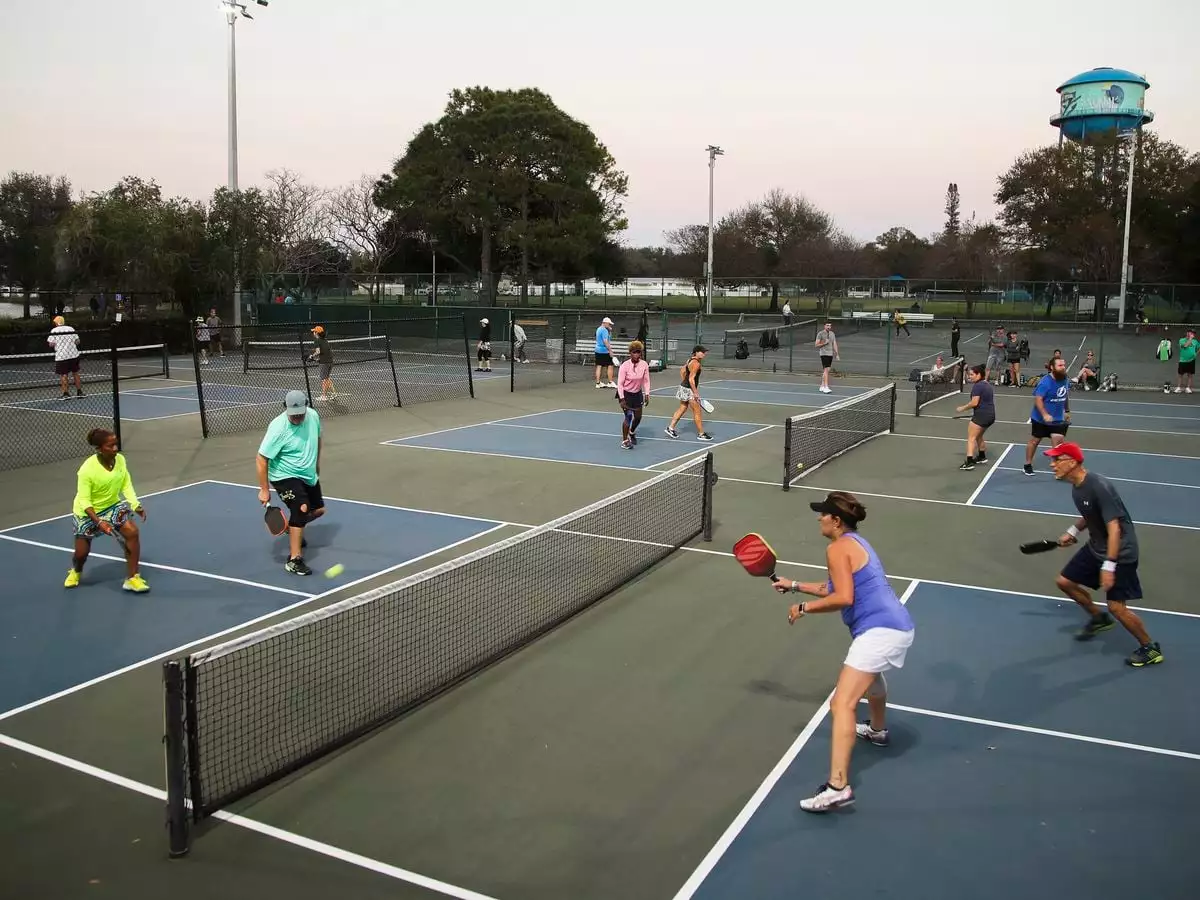
Standard Games vs. Extended Games
- Standard Games: Usually played to 11 points, requiring a two-point lead for victory, standard games tend to last anywhere from 10 to 25 minutes based on skill levels and competitive spirit. This shorter playtime format is prevalent in casual matches, making it accessible for players aiming to enjoy quick sessions.
- Extended Games: In contrast, extended games may stretch up to either 15 or 21 points, leading to more elaborate play that can last between 30 to 50 minutes or longer. Typically favored in competitive or tournament settings, these extended formats encourage greater endurance and tactical depth as contestants push for longer rallies and vital score increases.
In short, the choice of standard versus extended play format directly influences the anticipated game lengths while creating distinct atmospheres for either recreational or competitive experiences.
Point Systems (11 vs. 15)
Point systems in pickleball significantly frame the flow and duration of the game, belonging to two main formats: 11-point games and 15-point games.
- 11-Point Games: Matches played to 11 points generally allow for quicker rounds that may last around 15 to 30 minutes. In this point system, the faster pace can encourage more spontaneous exchanges, minimizing the time taken for rallies while focusing on immediate score impact.
- 15-Point Games: Conversely, when the scoring system demands players reach 15 points, the game length accents a much longer stretch, often ranging from 30 to over 50 minutes. The requirement to win by two points adds an element of drama, extending match dynamics as players increasingly battle for advantages.
Overall, the point system delivers a structural backbone that shapes not only the gameplay but the time players should consider when approaching their own matches.
Additional Rules Impacting Duration
Certain rules within pickleball also contribute to the overall duration of play, making it essential for players to embrace these considerations.
- Timeouts: Players can call timeouts at specific points during gameplay. Typically, a match allows one-minute timeouts when playing to 11 or 15 points, with up to three allowed in a 21-point game. While these timeouts offer players brief recovery moments, they can also extend match duration significantly, contingent on when they are implemented.
- Game Adjustments: Adjustments to play conditions such as changes in ends during games or unexpected interruptions can also cause significant impacts on game pacing. Players may require additional time when facing extenuating factors such as wind, sun, or crowd distractions, reflecting how external conditions influence game length.
- Environmental Factors: Any environmental factors or unique court conditions may also prompt breaks and lead to extended phases of the competition, altering flow and pacing midway through matches.
By recognizing these additional rules and factors affecting duration, players are equipped to navigate their gameplay strategies better and better anticipate how long matches may last.
Tournament Length
When participating in tournaments, understanding the essential dynamics shaping match durations becomes crucial. Various formats dictate how long a tournament might take, with three prominent structures worth analyzing.
Single-Elimination Format
- Basic Structure: In a single-elimination format, players compete in knockout rounds, eliminating participants after a single lose. This structure generally leads to a shorter tournament lifespan compared to other formats, as ranked play occurs in limited rounds of competition.
- Average Match Duration: Matches under this structure typically last about 30 minutes to an hour. However, game lengths can fluctuate between 20 to 90 minutes based on scoring rules, skill levels, and pacing patterns.
- Tournament Longevity: The overall length of the tournament is driven by the number of contestants and the efficiency of match scheduling. This structure often leads to a swift resolution, allowing efficient cycling through matches across the tournament day.
Round-Robin Format
- Structure Overview: In a round-robin format, each player or team plays against every other participant at least once. Because every participant competes multiple times, this naturally extends the overall duration of the tournament.
- Play Dynamics: Matches can last between 15 to 40 minutes on average, depending on the number of participants and competition levels. Due to the comprehensive nature of gameplay, effectively scheduling these matches can be vital in avoiding excessive delays during contests.
- Tournament Completion: Well-structured round-robin tournaments with fewer teams can often conclude within a single day; however, expanding this structure to accommodate numerous teams may stretch the tournament’s endurance over several days.
Double-Elimination Format
- Elimination Structure: The double-elimination format provides players with a chance for redemption by allowing one loss before elimination. This creates longer tournaments since players navigate through both main competition and consolation brackets.
- Extended Matchplay: Matches extend longer due to the possibility of multiple contests from different brackets. The double-elimination format can often take two days or longer, depending on the roster size, effectively doubling the length of the competition across the rounds.
- Competitive Dynamics: Players engaging in strategic comebacks can also lengthen individual game durations. For example, taking timeouts, changing tactics post-loss, and adapting gameplay formats leads to complex matches that can extend throughout tournament play.
In essence, tournament formats create intricate systems that shape how each competition unfolds, impacting individual game lengths while increasing the total tournament timeline through diverse match structures.
Historical Context
Understanding the historical context of pickleball provides insight into how game length evolved and what influences exist across various formats and competitions.
Longest Recorded Games
- Evolution of Game Length: Over the years, the duration of pickleball games has witnessed both extremes the fast-paced, short games enjoyed in casual settings and the longer, dynamic matches seen in competitive environments.
- Marathon Matches: While pickleball hasn’t reached the epic durations seen in other sports, records of lengthy competitive matches through tournaments are not uncommon, speaking volumes about the endurance and skill of today’s players.
- Variations Increasing: The introduction and modifications of game formats and scoring systems haven’t only impacted game durations but have also driven an evolution towards more competitive engagement, further diversifying the experiences across formats.
Record-Breaking Matches
- Competitive Pinnacles: Record-breaking matches serve as historic benchmarks that showcase extensive stamina. Notable matches that stretch well beyond conventional durations underline the intense spirit found in competitive pickleball settings.
- Nostalgic Remembrance: These matches often become legends, memorializing the athlete’s journey within the sport while also inspiring new generations of players striving to make their mark on the court.
- Dynamic Impact: The influence of record-breaking matches echoes throughout the community, leading players to adapt their training regimens, strategies, and approaches to last longer in games both competitively and casually in the spirit of recreation.
In summary, the historical context behind pickleball games offers a rich tapestry to consider when exploring game duration reflecting players’ journeys, the sport’s evolution, and ongoing competitive engagements within this beloved game.
Tips for Managing Game Length
To enhance the playing experience and optimize performance, players should consider a variety of tactics aimed at managing their game lengths effectively. Here are several key strategies:
Warm-Up and Preparation
- Dynamic Stretching: Engaging in dynamic stretches helps prepare muscles for action, promoting mobility and flexibility, improving overall performance, and reducing game transition times.
- Light Cardio: Before engaging in competition, light cardio exercises for 5-10 minutes not only enhance cardiovascular readiness but also raise overall body temperature and muscle preparedness.
- Practice Shots: Taking the time to practice various shots such as serves, volleys, and returns can ease players into gameplay while increasing familiarity with the court dynamics ultimately shortening the time taken to reach peak performance.
- Mental Preparation: Mental readiness through visualization exercises can enhance adaptability during gameplay. Focusing on anticipated moves and strategies allows players to maintain a better rhythm, leading to quicker match progression.
Hydration and Nutrition
- Hydration Levels: Staying properly hydrated before, during, and after play is essential. Drinking ample water prior to matches as well as sips during play can enhance stamina and focus, preventing fatigue from extending game durations.
- Nutritional Support: Focusing on balanced meals or snacks including carbohydrates and proteins before playing helps maintain energy levels, crucial for sustaining effort and speed throughout matches.
- Electrolyte Balance: In hotter conditions or longer play sessions, electrolyte drinks become instrumental in combating dehydration and maintaining energy levels crucial for facilitating responsive gameplay.
- Nutrition Timing: Timing the consumption of any snacks is critical, avoiding eating too close to game time to prevent sluggishness while ensuring energy levels peak during play.
Strategy and Technique Improvements
- Service Strategy: Emphasizing a strong serving strategy targeting opponents’ weaker sides can pressure them, leading to quicker rallies and shortened exchanges based on opponent weaknesses.
- Point Management: Control the pace of play by utilizing a mix of aggressive and defensive strategies, allowing players to dictate the tempo of rallies for enhanced scoring efficiency.
- Positioning Awareness: Being cognizant of court positioning can streamline movement and response times, thereby minimizing errors and maximizing effort and agility during exchanges.
- Technique Proficiency: Regularly practicing key techniques can make execution faster and more efficient, leading to points won more rapidly, ultimately shortening game lengths.
In summary, effectively managing game length hinges on a blend of physical, mental, and tactical preparations that equip players with the necessary tools for optimized gameplay.
Conclusion
Understanding how long does a pickleball game last involves an intricate weave of several defining factors, including player skill levels, game formats, scoring systems, and playing styles. By delving into these nuances, players can better anticipate the rhythm of games and optimize their strategies accordingly, regardless of whether they’re engaging in casual matches or high-stakes tournaments. Additionally, players can benefit from implementing effective management techniques that enhance their playing experience allowing for skill development, fostering social engagement, and contributing to the overall joy of pickleball. The beautiful game of pickleball rewards attention to detail while delivering an enjoyable experience for players, spectators, and communities alike.
